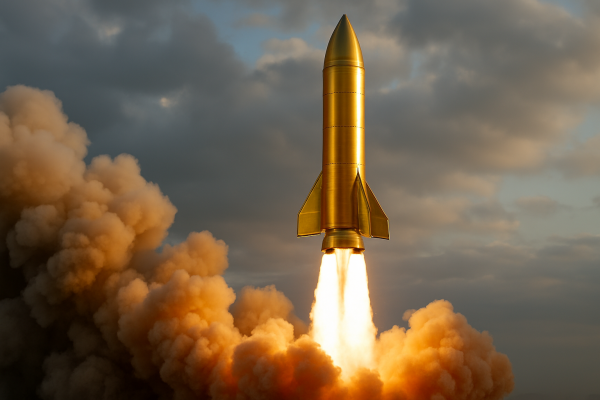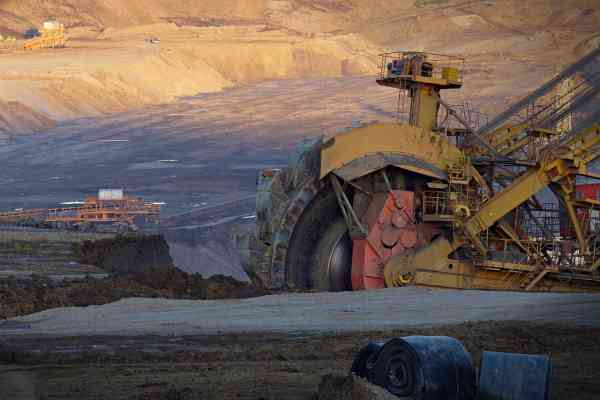September 8th, 2023 | 07:00 CEST
Meeting climate goals in conflict: Who benefits from China's raw materials dominance? Rheinmetall, Defense Metals, BYD
In the ambitious pursuit to meet climate targets, both political and economic players are taking a risky step. The rapid shift away from fossil fuels in favor of alternative energy sources is leading to a marked increase in the consumption of metallic raw materials that are essential for building renewable and energy-efficient systems. In particular, copper, cobalt, nickel and rare earths, whose imports come mainly from China, are experiencing rising demand. Moreover, with the outbreak of the conflict in Ukraine, the defense industry's interest in these resources is intensifying. Producers of critical metals outside of China could emerge as winners in this development.
time to read: 4 minutes
|
Author:
Stefan Feulner
ISIN:
RHEINMETALL AG | DE0007030009 , DEFENSE METALS CORP. | CA2446331035 , BYD CO. LTD H YC 1 | CNE100000296
Table of contents:

"[...] Nickel, therefore, benefits twice: firstly from its growing importance within batteries and secondly from the generally growing demand for such storage. [...]" Terry Lynch, CEO, Power Nickel
Author
Stefan Feulner
The native Franconian has more than 20 years of stock exchange experience and a broadly diversified network.
He is passionate about analyzing a wide variety of business models and investigating new trends.
Tag cloud
Shares cloud
BYD - On the way to Number 1
Although the Chinese market leader in electric vehicles is barely present in Germany, European CEO Michael Shu sets a clear target in an interview with Handelsblatt. They aim to achieve a market share of around 5 to 6%, which would make them the leading foreign manufacturer. First, the Shenzhen-based company wants to analyze the German market, which relies heavily on leasing business and fleet customers.
In addition, the BYD Manager expressed deep appreciation for the established German automotive groups. In particular, he singled out Volkswagen, BMW, and Mercedes-Benz for demonstrating their presence and dominance in a variety of markets. BYD intends to learn from these industry leaders and is by no means averse to entering into collaborations. Shu emphasizes that numerous partnerships already exist in the battery sector. The German giants serve as a competitive spur for the Chinese, which Shu says leads to a balanced relationship between the companies.
With Europe declared the second most important market for BYD, the Company took the recently launched IAA Mobility as an opportunity to ramp up its entire e-car lineup for Europe. It also released technical specs and German pricing for the Seal and Dolphin models and introduced BYD's Denza brand to Europe for the first time. In addition to the ATTO 3, Tang and Han e-car trio launched at the European market launch, BYD is also bringing the 800-volt Seal and Dolphin to the European market. BYD had already priced the Dolphin in Europe in June. It is expected to cost between EUR 29,990 and EUR 37,740.
Defense Metals - Further potential discovered
The rapidly growing market of electric vehicles and defense equipment inevitably leads to an increased demand for rare earth metals. Neodymium is of greatest importance for the energy transition for strong permanent magnets in electric motors and wind turbines. In addition to the renewable energy sector, demand from the defense industry is also steadily increasing. Neodymium-iron-boron magnets are considered the strongest permanent magnets in the world and are included in many military weapons systems. However, one sourcing problem is that China, with over 90%, controls the entire value chain from mining to refining to the production of rare earth metals and alloys. The ever-worsening conflict between the Middle Kingdom and the US has thus been prompting Western governments to promote domestic deposits through subsidies to curb their dependence on China for years.
One of the most promising projects is owned by the Canadian company Defense Metals. The 4,244-hectare Wicheeda project has first-class infrastructure and is located about 80 km northeast of the city of Prince George, a mining hub in British Columbia, Canada. Another advantage is that the property being explored by Defense Metals has the same metallurgy as the producing Mountain Pass mine in California. When the Mountain Pass mine was discovered in 1950, coarse crystalline bastnäsite and parisite were discovered and were easily exposed, making it the preferred rare earth metal. The Wicheeda deposit has the same coarsely crystalline metals that can be processed inexpensively by conventional methods. In the future, Wicheeda is expected to be responsible for 25,000 t of rare earth oxide, representing 10% of current global production.
In a recent ground radiometric geophysical survey, Defense Metals identified new anomalies that may represent previously unknown rare earth mineralized carbonatites, most of which are within the current mineral resource pit model, as documented in the preliminary economic assessment. Kristopher Raffle, P.Geo. and Director of Defense Metals, commented: "We are pleased to have identified two new exploration targets so close to the Wicheeda deposit. The radiometric surveys were originally designed to support our geological mapping teams, and it was a surprise when we discovered new anomalies beneath the overburden that had a similar geophysical structure to the known drilled and outcropping rare earth mineralization."
The market capitalization of Defense Metals currently stands at CAD 48.63 million. With further positive progress towards completing the pre-feasibility study, this should adjust upwards in parallel.
Rheinmetall AG partners with Lufthansa
The German armed forces continues to upgrade and ordered F35 jets from the integrated technology group. As a result, two major German DAX companies intend to collaborate in the future. According to reports, the Düsseldorf-based company wants to cooperate with Lufthansa's technical division in the maintenance of the stealth bomber. The cooperation is to be sealed on September 19, as reported by "Business Insider". Spokespersons for Rheinmetall and Lufthansa Technik declined to comment on the report on Tuesday. Bavarian electronic systems supplier ESG is also said to be on board.
Starting in 2025, Rheinmetall plans to produce mid-fuselage parts for the US F-35 fighter jet at a new factory in Weeze. The German armed forces have purchased 35 jets for EUR 8.3 billion, to be delivered starting in 2026. According to "Business Insider," the planes are to take over nuclear sharing from the aging Tornados. This means that in the worst-case scenario, the jets would carry nuclear weapons. In addition, they are intended to serve as fighter aircraft to engage enemy targets on the ground. Rheinmetall is a contractor for the US defense contractor Northrop Grumman, which in turn works for Lockheed Martin.
Lufthansa Technik, for its part, has been maintaining the aircraft of the German Air Force Special Air Mission Wing for many years and wants to become more involved in the defense business in the future. In particular, the Hamburg-based company could take over the maintenance of aircraft and the supply of spare parts, as it has been doing for civilian companies for many years.
The goals for BYD in Germany were clearly articulated during the IAA. According to media reports, Rheinmetall will cooperate with Lufthansa in the future. Defense Metals was able to identify further anomalies on its Wicheeda project.
Conflict of interest
Pursuant to §85 of the German Securities Trading Act (WpHG), we point out that Apaton Finance GmbH as well as partners, authors or employees of Apaton Finance GmbH (hereinafter referred to as "Relevant Persons") may hold shares or other financial instruments of the aforementioned companies in the future or may bet on rising or falling prices and thus a conflict of interest may arise in the future. The Relevant Persons reserve the right to buy or sell shares or other financial instruments of the Company at any time (hereinafter each a "Transaction"). Transactions may, under certain circumstances, influence the respective price of the shares or other financial instruments of the Company.
In addition, Apaton Finance GmbH is active in the context of the preparation and publication of the reporting in paid contractual relationships.
For this reason, there is a concrete conflict of interest.
The above information on existing conflicts of interest applies to all types and forms of publication used by Apaton Finance GmbH for publications on companies.
Risk notice
Apaton Finance GmbH offers editors, agencies and companies the opportunity to publish commentaries, interviews, summaries, news and the like on news.financial. These contents are exclusively for the information of the readers and do not represent any call to action or recommendations, neither explicitly nor implicitly they are to be understood as an assurance of possible price developments. The contents do not replace individual expert investment advice and do not constitute an offer to sell the discussed share(s) or other financial instruments, nor an invitation to buy or sell such.
The content is expressly not a financial analysis, but a journalistic or advertising text. Readers or users who make investment decisions or carry out transactions on the basis of the information provided here do so entirely at their own risk. No contractual relationship is established between Apaton Finance GmbH and its readers or the users of its offers, as our information only refers to the company and not to the investment decision of the reader or user.
The acquisition of financial instruments involves high risks, which can lead to the total loss of the invested capital. The information published by Apaton Finance GmbH and its authors is based on careful research. Nevertheless, no liability is assumed for financial losses or a content-related guarantee for the topicality, correctness, appropriateness and completeness of the content provided here. Please also note our Terms of use.




